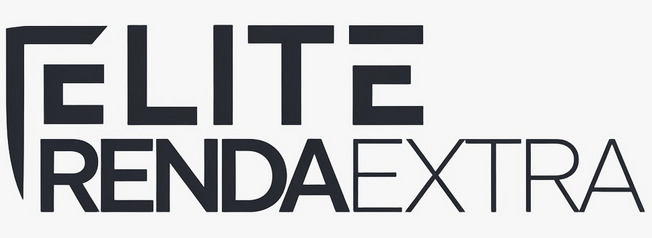Facing financial hurdles with a less-than-perfect credit score can feel isolating, but it’s a situation many Canadians encounter. The search for financial solutions might seem daunting when traditional lenders appear to close their doors. It’s a common misconception that a low credit score automatically disqualifies you from receiving financial assistance.
In reality, the financial landscape in Canada is diverse and accommodating. There are specific pathways and options available designed for individuals navigating this exact challenge. Understanding these alternatives is the first step toward finding a suitable solution and regaining your financial footing.
Understanding What “Bad Credit” Means in Canada
Before exploring loan options, it’s helpful to understand what “bad credit” actually signifies. In Canada, credit scores, managed by two main bureaus, Equifax and TransUnion, typically range from 300 to 900. While each lender has its own criteria, a score below 600 is generally considered poor or “bad.”
This score is a numerical summary of your credit history. It reflects your payment history, how much debt you carry, the length of your credit history, and the types of credit you use. A lower score suggests to lenders that there may be a higher risk associated with lending to you. However, it’s just one piece of the puzzle, and many modern lenders recognize this.
Why a Traditional Loan Can Be Difficult to Secure
Major Canadian banks and credit unions often have stringent lending criteria. They rely heavily on credit scores as a primary indicator of an applicant’s reliability. For them, a low score can be a significant red flag, often leading to an automatic denial without much consideration for the applicant’s current circumstances, such as a stable income or recent financial improvements.
This rigid approach is what makes the search for a loan frustrating for many. But this is also why a robust market of alternative lending solutions has emerged across Canada, specifically to serve those who don’t fit the traditional mould.
Exploring Your Loan Approval Options with Bad Credit
The good news is that your options extend well beyond the big banks. A growing number of lenders in Canada specialize in providing financial products to individuals with challenging credit histories. They often use a more holistic approach to assess an application.
Alternative and Online Lenders
Online lenders have transformed the lending landscape. They often have more flexible requirements compared to traditional institutions. Instead of focusing solely on your credit score, they may place more weight on other factors, such as:
- Your income and employment stability: A steady job and a reliable income stream demonstrate your ability to make repayments.
- Your debt-to-income ratio: They will assess how much of your monthly income is already committed to other debts.
- Recent financial behaviour: Positive changes, like consistent payments on current bills, can work in your favour.
These lenders operate across Canada, offering a more accessible route to financing for many.
Personal Instalment Loans
One of the most common products offered to those with bad credit is a personal instalment loan. With this type of loan, you borrow a specific amount and repay it over a set period through fixed monthly payments. This predictability is excellent for budgeting, as you always know exactly how much you owe each month and when the loan will be fully paid off.
These loans can be used for various purposes, from consolidating higher-interest debts into a single, more manageable payment to covering unexpected emergencies like car repairs or medical expenses.
The “No Credit Check” Consideration
You may come across lenders offering “no credit check loans.” It’s important to approach these with a clear understanding. While they may not perform a “hard” credit inquiry with Equifax or TransUnion, they are not lending blindly. These lenders will still verify your ability to repay the loan through other means, such as reviewing bank statements to confirm income and check for other financial red flags.
While this can be a viable option for some, it’s crucial to be aware that these loans may come with higher interest rates to compensate for the lender’s increased risk. Always read the terms and conditions carefully to understand the full cost of borrowing.
Steps to Take Before Exploring Loan Options
Being prepared can significantly improve your experience and your chances of a positive outcome. Taking a few proactive steps can make all the difference.
1. Know Your Financial Standing
Before you approach any lender, get a clear picture of your own finances. You are entitled to a free copy of your credit report from both TransUnion and Equifax annually. Review it for any errors that might be dragging your score down. Beyond the score, create a simple budget to understand your monthly income and expenses. This will help you determine how much you can realistically afford to repay each month.
2. Gather Your Documents
Most online lenders have a streamlined application process, but they will still require certain documents to verify your information. Having these ready can speed things up. Common requirements include:
- Government-issued photo ID (e.g., driver’s licence)
- Proof of income (e.g., recent pay stubs, employment letter)
- Recent bank statements (often for the last 60-90 days)
- Proof of address (e.g., a utility bill)
The Long-Term Impact: A Tool for Rebuilding
A loan for bad credit isn’t just a short-term fix; it can be a strategic tool for your financial future. When you secure an instalment loan and make every payment on time and in full, the lender typically reports this positive activity to the credit bureaus.
Over time, this consistent, positive payment history can have a significant and favourable impact on your credit score. It demonstrates to future lenders that you are a reliable borrower, potentially opening up access to more favourable financial products down the road. The key is responsibility. Ensuring you only take on a loan that you can comfortably manage is essential for turning it into a credit-rebuilding opportunity.
Navigating the world of loans with a low credit score in Canada is entirely possible. The key is to be informed, understand the different avenues available, and approach the process with a clear understanding of your own financial situation. By being a proactive and responsible borrower, you can find a solution that meets your immediate needs while also helping to build a stronger financial future.

